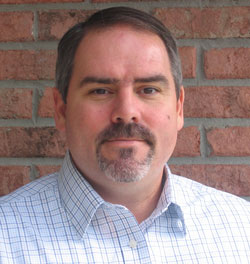
From the Editor - Leaders Need to Reset Priorities

In the latest climate-related scandal, commonly referred to Climategate, hacked E-mails from British scientists have exposed a huge ethics problem, if not something more sinister. In one E-mail, a prominent climatologist suggested that work of scien- tists with dissenting opinions should not be published. Other E-mails suggested that data had been manipulated in favor of anthropogenic climate warming. The institu- tion under fire, the University of East Anglia in the U.K. said, Phil Jones, head of the university’s climate research unit, had decided to “step aside” from his director’s post.
The U.S. has postponed its cap-and-trade bill, but many still expect the Environmental Protection Agency to regulate carbon dioxide (CO2) under the Clean Air Act. Indiana Governor Mitch Daniels summed up the legislation as a carbon tax on productive U.S. states to pay for failed social programs in the Northeast and California. Not wanting to experience a second failure in Copenhagen this year, however, the Obama administration desperately wants to do something to look like it’s getting seri- ous about climate policy.
A similar situation has unfolded in Australia. A cap-and-trade bill is the center- piece of Australian Prime Minister Kevin Rudd’s agenda. The Liberal Party recently sided with Rudd and his tax scheme. Given the limited amount of emissions in Australia, this is another tax with little environmental benefit. The conservative wing of the Liberal Party recently showed its disapproval and six MPs stepped down from the bench in protest. The party then ousted its leader Malcom Turnbull in favor of Tony Abbott, who recently referred to the bill as a slush fund for political handouts.
Is a carbon tax the right approach? Is the science behind the Intergovernmental Panel on Climate Change (IPCC) sound or not? Will prices for carbon credits push a fragile economy to the brink? All of these issues and more will cloud the debate in Copenhagen.
Operating in a socio-economic and environmentally sensitive manner is now an accepted part of the business plan for any mining operation. This month E&MJ offers an 8-page report on how this practice has evolved in the last 50 years (See Sustainable Development, p. 52). These practices also come at a cost and that cost is built into the final selling price of the commodity. The primary directive for any business, is to turn a profit. If taxes or shady credit trading schemes place businesses in one region at an economic disadvantage over those in another, then nothing has been accom- plished. The world needs a common sense approach.
Being green is a luxury. It has a significant price tag. Who is going to foot the bill? Ultimately, it’s the consumer. Consider the arrogance of Americans converting corn into ethanol for a clean burning fuel when people do not have enough to eat. How many people will get sick from not having access to clean drinking water while misinformed politicians debate whether or not CO2 is a pollutant in Copenhagen. More people will perish from unaffordable electricity than the oceans rising 50 cm in next 50 years. The world needs to reset its priorities and it won’t happen in Copenhagen.

Steve Fiscor, Editor-in-Chief,
E&MJ